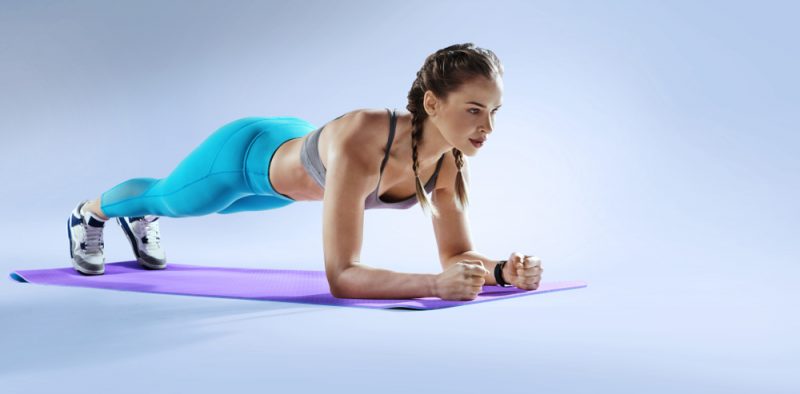Sports Apparel
6 Fitness Tips for Busy People

6 Fitness Tips for Busy People
Reaching and maintaining good physical fitness is essential for your health, wellbeing and longevity. It is recommended that you exercise for 150 minutes per week and minimise time spent sitting or lying down. 150 minutes can seem like an impossible target and many people do not have enough time in the day to fulfil work, family and social demands. Fitting in three or four dedicated workout sessions each week may not seem attainable but there are plenty of ways to increase your physical activity by adapting your current routine.
Many people spend the majority of their working day sat at a desk. This is unavoidable for most but there are ways to utilise the working day to maximise your physical activity. Standing desks are a great alternative to a traditional desk. Sitting keeps the body in resting state whereas standing elevates the heart rate slightly and engages your core, abdominal, leg and hip muscles. You could also consider sitting on an exercise ball and bouncing lightly for one or two thirty-minute sessions each day to work your core muscles and improve strength and balance. Do not spend the entire working day sitting on an exercise ball as this can increase your risk of lower back pain.
Many social activities are sedentary in nature, for example having drinks, eating dinner or watching a movie. There are lots of active ways to spend time with people. Try going for a hike or a walk in the park. Other great activities for socialising include playing racket sports such as tennis or badminton, renting a pedalo or rowing boat together, or even taking partner dance classes. Anything that gets you on your feet and moving is a physical activity, so wandering around a museum, going out dancing or swimming in the ocean are all great ways to stay active whilst socialising. You could always reward your physical efforts by getting drinks or dinner afterwards.
The time you spend cooking is typically time spent standing. Try to utilise this time by doing some light cardio exercises whilst you prepare a meal. Playing some music and dancing around the kitchen is a fun option, especially if you have children and want to spend this time with them. You could also do mini sets of squats, lunges and wall sits or use tin cans as makeshift weights and do some bicep curls while you cook.
If you cannot carve out even five minutes a day to exercise, a good option is to invest in wrist and ankle weights and wear these during the day. Wearing small weights will increase the amount of effort it takes to do basic tasks such as walking around the office, driving or putting away groceries. Your heart rate will be more elevated than it would normally be as you do these tasks. Try choosing two or three hours spaced throughout the day where wearing weights will have the biggest impact, for example when doing housework.
Sometimes, lack of motivation is an issue. If you plan to exercise in the evenings or at the weekend but find that you never do because you are tired, try creating a real goal with a deadline. A race is the perfect goal. You can choose between running, walking, cycling, swimming, obstacle courses or many other obscure challenges. Try to sign up with a friend or group of people so that you can train together and motivate each other to workout.
Alternatively, try to wake up thirty minutes earlier than normal at least one morning a week and go for a walk, jog or bike ride before work. The beginning of the day is the best time to do something that takes a lot of motivation because the rational part of the brain is dominant. When you get home from work, the rational brain is already beginning to shut down in preparation for sleep and you are more likely to act impulsively based on your emotions or immediate needs.
One hundred-fifty minutes is the recommended goal but if this is unattainable, aiming for a smaller target may be helpful. It can be demotivating to aim for 150 minutes if you know you will never achieve it. Work out how many minutes each day you could realistically be physical active. Even ten additional minutes of physical activity each day is more than an hour a week. Push yourself to achieve your own goal and celebrate when you achieve or surpass it. This will help you to feel good about your efforts rather than deflated by them.
Getting fit has plenty of short-term benefits such as increased energy, physical strength and better sleep quality. It can also reduce stress and lift your mood. If you can commit to increasing your physical activity by just ten minutes a day you will start to feel the benefits of fitness, which then acts as a natural motivator. Rather than trying to change your whole routine, choose one thing at a time to adapt and increase your physical activity gradually. Using this method will help you to build new habits and sustain your physical activity over time.